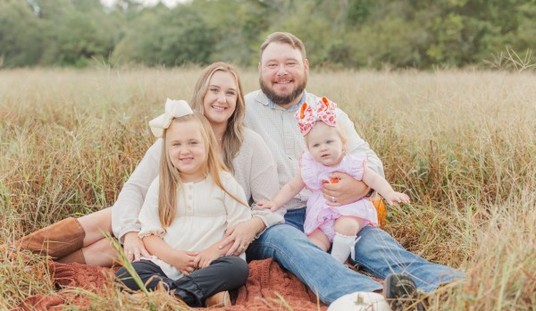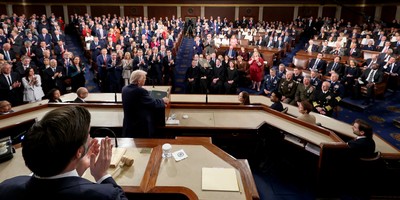With a wave of the pen --actually, 90 pages of waving-- U.S. Federal District Judge Lynn Adelman in Milwaukee struck down Wisconsin's three year old voter identification law on Tuesday. As The Atlantic's Andrew Cohen noted yesterday "[i]t is far from certain that the ruling will withstand review by the very conservative 7th U.S. Circuit Court of Appeals or the even more conservative Supreme Court, which in 2008's Crawford v. Marion County declared that state voter-ID laws could be constitutional."
In other words, Cohen admits that Adelman almost certainly got it wrong, that his ruling will be reversed, and that the Wisconsin voter identification law, like most such laws, is quite constitutional as a means of preventing future voter fraud even if the record before a particular court doesn't include instances of past voter fraud. Do we really need to prove that Philly, Chicago, and yes, Milwaukee, are home to voter fraud before acting to require that a voter present identification before voting?
In fact some commentators are attempting to argue in the aftermath of Adelman's unusual ruling that voter i.d. can only be required where a record of past fraud is abundant. That's absurd, of course. Voting is a highly regulated activity, and just because an eight-year Democratic state senator and three-time Congressional candidate-turned federal judge wants to invent a new standard that helps Democratic machines that may not be too particular about whom they round up on election day doesn't mean he gets to. (Yes, Adelman is a Clinton appointee with a long record of partisan involvement prior to joint the bench. Good for him. Long may pols become judges. Let's just be clear-eyed about the bias he brought with him to the bench.)
The Adelman opinion is interesting only because it is the opening act in a long summer and fall of election lawfare. "Lawfare" is a term to describe that portion of the war on terror that takes place inside of courtrooms as the American justice system and other international legal systems try to adapt to the relatively new world of stateless terrorists and the due process, if any, they are owed by various nation-state legal systems. Most have been shocked by the verdicts coming of out Egypt in the aftermath of the trial of hundreds of Arab Spring activists, but this is only the recent act in a world-wide drama of law meeting terrorism. (Robert C. O'Brien was recently on my show reporting on the proceedings underway in Gitmo for the mastermind of the 9/11 attacks.)
Recommended
Election lawfare began to arrive in American politics in the aftermath of the close 2000 presidential election, and then followed in rapid succession in the Washington State governors' race of 2004 and then in the famed Al Franken-Norm Coleman recount in the Minnesota U.S. Senate race in 2008.
With 14 Democratic seats and control of the U.S. Senate on the line this fall, expect a lot of overtime elections and instant replay flaps. I spent part of Wednesday's radio show talking with election law veteran, friend and colleague
Engle, Chemerinsky, and Eastman all stressed the reality of the situation --transcripts of their interviews will be posted here later in the day-- and that reality is that elections will increasingly be decided in courtrooms, not on election day, and that the identities of the judges and the lawyers involved will matter a great deal. The voter identification battle in the larger red-blue war is being fought on a dozen other fronts. Some states are moving to much-harder-to-police mail voting systems, and Colorado's "Permanent Mail-in Voter" list almost guarantees shenanigans on a massive scale. Litigation over these laws will take place from now through November and beyond. The recounts and contested vote proceedings are going to get more prolonged and messier, not quicker and more straightforward.
My 2004 book and the continuing work of John Fund have detailed the country's vast history of vote fraud. Voter fraud in America is a fact of life. It does matter in close elections. Always has. Always will. And reformers aren't going to stop trying to make sure that "one registered voter, one vote cast by that registered voter" is the standard in practice and not just in theory. If elections lose legitimacy, so do the laws that follow them, and the judges confirmed by the men and women elected in those elections. Rick Hansen's Election Law Blog is a great place to keep track of everything being written and said on the subject.
Fraud and counter-fraud is as old as the Republic, then, but what is very new is the courtroom phase of elections, where teams of very specialized lawyers parachute in from D.C. to first monitor voting, then challenge suspect ballots and then litigate over who counts what. There aren't many specialists like Engle, and the average practitioner before the Federal Elections Commission who organizes super pacs, keeps the donations legal and reported. and both donor and candidate away from the grey areas of the law isn't used to the high stakes drama of Bush v. Gore or Coleman v. Franken. A new breed of super-elections lawyer has developed in the last decade-and-a-half.
Count on meeting these lawyers through the media this fall, and the smart campaigns are already putting them on retainer and their teams on notice, and not just so that FEC rules are complied with, though that matters a great deal as well. (The large field of would be 2016-presidential candidates have also learned from the 2012 primaries that these lawyers are necessary as well to keep track of and comply with ballot qualification laws in 50 states. Only two candidates --Mitt Romney and Ron Paul-- qualified for the ballot in all fifty states last time around.) These lawyers are making hotel reservations in 14 different states and getting to know the addresses of county election boards and the names of clerks in the offices of various Secretaries of States. Prepping the election law battlefield is underway.
2014 has more than a dozen Senate races any one of which may decide the contours of President Obama's last two years and thus the fate of any Supreme Court nomination that may come along in that period. With stakes that high, the decision in Wisconsin Tuesday isn't even an opening act, more like an orchestra tuning up.

























Join the conversation as a VIP Member